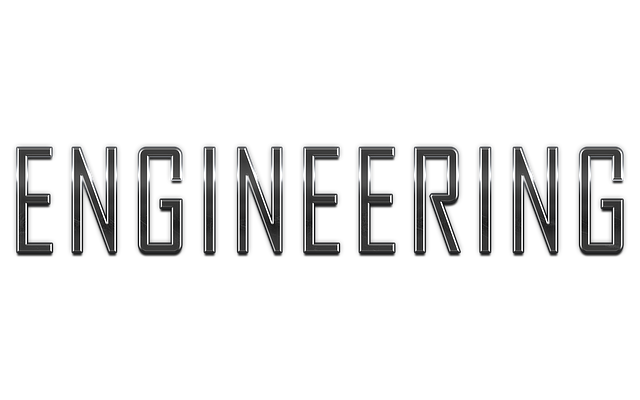When the gears of transaction shift in the automotive world, the vehicle title transfer is the linchpin ensuring a seamless transfer of ownership. This article demystifies the DMV title transfer process, a critical component when buying or selling a car. It guides you through the essential steps, including completing the right DMV title transfer form, understanding and preparing for the title transfer fees involved, and fulfilling all necessary legal requirements to make your vehicle registration transfer both legitimate and official. Skipping this procedure can lead to unwanted legal entanglements and fines, making it imperative to handle with care and attention to detail. Dive into the intricacies of a hassle-free car title application and safeguard your vehicular assets.
- Navigating the DMV Title Transfer Process for Car Ownership Transfers
- Completing the Necessary DMV Title Transfer Forms and Understanding Title Transfer Fees
- Ensuring a Legally Binding Vehicle Registration Transfer Upon Car Title Application
Navigating the DMV Title Transfer Process for Car Ownership Transfers

When transitioning car ownership, adhering to the vehicle title transfer protocol is paramount. The DMV title transfer process commences with completing the appropriate form, often referred to as the car title application. This document serves as the official request for transferring the title of a vehicle from one individual to another. It is essential to procure the correct form specific to your state’s Department of Motor Vehicles (DMV) requirements. Once the DMV title transfer form is filled out accurately and submitted, the next step involves paying the applicable title transfer fees. These fees are established by state law and cover the administrative costs associated with processing the transfer request. It is crucial to be aware of these fees beforehand to ensure you have the necessary funds.
The DMV title transfer process also mandates that specific criteria be met, which may include providing proof of ownership, such as the existing title or a bill of sale, and satisfying any lienholder requirements if the vehicle is financed. Additional documentation, like a valid photo ID and proof of insurance, may also be required to complete the transfer. Failure to comply with these regulations can lead to complications, including legal issues and potential penalties. Thus, it is imperative to gather all necessary documents before initiating the DMV title transfer process for car ownership transfers. This due diligence ensures a smooth transition of vehicle registration transfer and recognizes the new owner officially within the state’s records.
Completing the Necessary DMV Title Transfer Forms and Understanding Title Transfer Fees

When embarking on the vehicle title transfer process through the Department of Motor Vehicles (DMV), the initial step is to complete the appropriate DMV title transfer form. This form serves as a legal document, facilitating the transition of ownership from the seller to the buyer. The car title application, specifically designed for this purpose, captures all necessary details and ensures that the DMV has an accurate record of the vehicle’s new owner. It is imperative that all information be filled out accurately and completely to avoid any delays or complications in the transfer process. This form is accessible online or at your local DMV office, where assistance is available should you require guidance in its completion.
Upon submitting the completed form, the next phase of the DMV title transfer process involves understanding and paying the applicable title transfer fees. These fees are established by state legislation and vary depending on the jurisdiction in which the vehicle is being transferred. Title transfer fees typically encompass a range of charges, including processing fees, transfer taxes, and registration fees. It is crucial to be aware of these costs beforehand to ensure that you can complete the transaction without any financial hiccups. The DMV will provide a detailed breakdown of the fees associated with your specific title transfer. Ensuring that all fees are settled promptly upon submission of the form is essential for a smooth and efficient vehicle registration transfer, officially recognizing the new owner in the eyes of the law.
Ensuring a Legally Binding Vehicle Registration Transfer Upon Car Title Application

When transitioning ownership of a vehicle, it is imperative to ensure a legally binding vehicle registration transfer upon initiating a car title application. The Department of Motor Vehicles (DMV) facilitates this process through a systematic approach that includes completing the DMV title transfer form, which varies by state but generally requires information from both the seller and buyer. This form serves as a legal document that outlines the terms of the transfer and must be accurate to avoid any complications. Alongside the form, applicants must settle the appropriate title transfer fees, which are established by each state’s legislation. These fees compensate for the administrative costs involved in processing the transfer and registering the vehicle under the new owner. The DMV title transfer process is designed to be thorough, ensuring that all legal requirements are met before the transfer is official. This includes verifying the identities of both parties, confirming the vehicle identification number (VIN), and ensuring that any existing liens on the vehicle are settled. Adherence to these steps is crucial for a smooth and legally sound vehicle registration transfer, thereby protecting both the buyer and seller from potential legal issues and fines associated with unauthorized use of a vehicle or fraudulent title claims. It is advisable to consult the DMV’s guidelines specific to your state and consider any additional documentation or requirements that may apply to your situation. By carefully following the DMV title transfer process, you can guarantee that the car title application results in a legally binding transfer of ownership, ensuring peace of mind for all parties involved.
Transferring a vehicle’s title is an integral aspect of the car ownership lifecycle, as it officially recognizes the change in possession. The DMV title transfer process, detailed in sections such as “Navigating the DMV Title Transfer Process for Car Ownership Transfers” and “Completing the Necessary DMV Title Transfer Forms and Understanding Title Transfer Fees,” is designed to be straightforward yet comprehensive. By adhering to this process, which includes submitting the correct DMV title transfer form and paying the required title transfer fees, individuals ensure a legally binding vehicle registration transfer. It is imperative for all parties involved in a car sale or purchase to complete this process to avoid any legal issues or penalties associated with an unofficial transfer of car title. The article has provided a clear guide on how to navigate the DMV title transfer process effectively, ensuring peace of mind and legal compliance for your vehicle’s title transfer needs.



